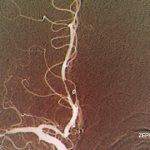New evidence from a clinical trial of rituximab has identified the pathogenetic role of B cells in the earliest, pre-arthritis stage of autoantibody-positive RA…


New evidence from a clinical trial of rituximab has identified the pathogenetic role of B cells in the earliest, pre-arthritis stage of autoantibody-positive RA…
Will Boggs, MD |
NEW YORK (Reuters Health)—Rheumatoid arthritis (RA) outcomes are better with some non-TNF inhibitors than with others, according to French registry data. “Previously, indirect comparisons (meta-analyses) did not show any difference between biologics in terms of effectiveness,” Dr. Jacques-Eric Gottenberg from Strasbourg University Hospital, France, tells Reuters Health by email. “Our direct comparison using observational data…

CHICAGO—Reproductive health can be a concern for patients with rheumatic diseases, and practitioners in both disciplines often work closely together. The Reproductive Health in Rheumatic and Musculoskeletal Diseases Guideline, a draft of new clinical recommendations developed by an ACR-convened group for pregnant women, post-menopausal women, lactating women, and women and men trying to conceive or…

One of my fellows could take better care of his patients if it weren’t for the attendings getting in his way. Or so he tells me. I can hear the howls of protest already. This statement isn’t fair—it is too broad, it doesn’t fairly depict the nuances of the situation or his point of view. First,…

Gbemisola Olayemi, MD, Evangeline Scopelitis, MD, & Jerald M. Zakem, MD |
Vasculitis is a group of chronic inflammatory diseases in which the blood vessel is the target of an immune reaction. They can be secondary to connective tissue disease, idiopathic or due to infection, neoplasm or drugs.1 Primary angiitis of the central nervous system (PACNS) is a rare syndrome characterized by inflammatory cell infiltration and necrosis…

CHICAGO—Diagnostic and treatment tips on Sjögren’s syndrome from the experts at the 2018 ACR/ARHP Annual Meeting.

Amaka Odonwodo, MD, MPH, & Carlos Julio Aponte, MD, FACP, FACR |
Palindromic rheumatism (PR) was first described in 1944 as “unique in its nature of recurrent, transient episodes of excruciatingly painful inflammation of articular and periarticular tissues, followed by periods without symptoms.”1 Unfortunately, it is becoming evident this entity is more frequent than we thought.2 PR is easily ignored or misdiagnosed due to its character (i.e.,…

Charles Radis, DO |
I glanced up from Amanda Wolf’s chart as the emergency department nurse, followed by the lab technician (tech), followed by the electrocardiogram (ECG) tech flowed into cubicle No. 5. John Benner, MD, pulled up a chair to review the case with me at the nursing station. “Here’s what we’ve got. Thirteen-year-old girl with a one-week…

New research identifies how education designed to empower self-care and collaboration among providers, patients and family members can help patients with Sjögren’s syndrome manage their daily challenges and take back their lives…

AMSTERDAM—With new therapies coming into the marketplace, researchers are working to tease out the risk of infection for rheumatoid arthritis (RA) patients. Existing data suggest the risk of infections—even fatal ones—is real. But over time, improvements have taken hold, particularly for tuberculosis, according to an infectious disease expert at EULAR: the Annual European Congress of…